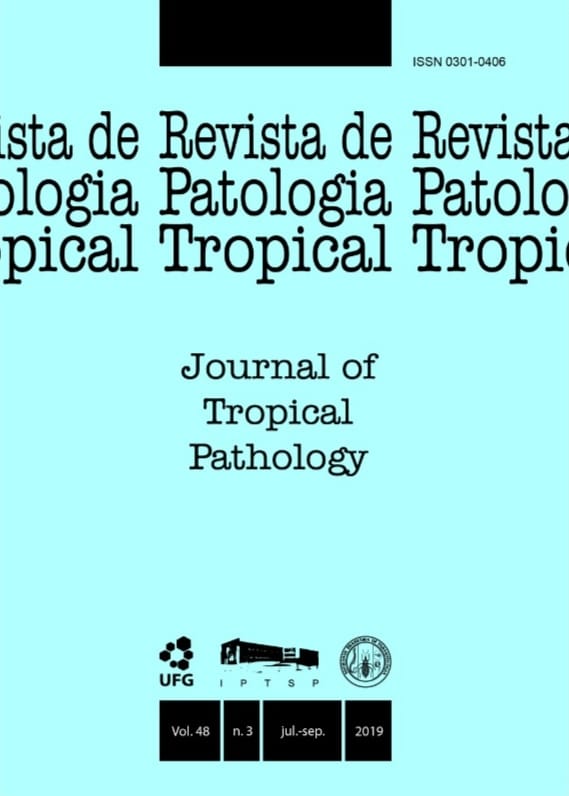DETECTION OF INTESTINAL PARASITES IN PUBLIC TRANSPORT BUSES IN BELÉM, PARÁ STATE, NORTHERN BRAZIL
DOI:
https://doi.org/10.5216/rpt.v48i3.59155Resumo
The purpose of this study was to investigate the frequency of intestinal parasites in public transport buses in the city of Belém, Pará, Brazil, as well as to compare the frequency of these enteroparasites according to the bus lines, collection sites within the vehicles, and presence of pathogenic and nonpathogenic parasites in the samples. This is a cross-sectional analytical study carried out between February and April 2019, in which 320 samples were analyzed, from 5 bus lines, 8 buses each, collected from 8 different surfaces inside the vehicles, according to Graham’s method. Subsequently, the statistical test was performed to evaluate the differences
between the variables, considering p ? 0.05. The results indicated that 7.8% of the samples were parasitized and the right handrail presented the highest prevalence of parasites, namely 2.2%. The pathogenic parasites corresponded to 26.7% and the non-pathogenic 73.3%. The non-pathogenic parasite most commonly found was Entamoeba coli totaling 50%, whereas the only pathogenic parasite was Giardia intestinalis in 26.7%. Thus, the presence of pathogenic and non-pathogenic parasites reflects the precarious hygiene of users of this type of transport, presenting a public health issue which needs to be addressed.
KEY WORDS: Intestinal Diseases, Fomites, Transmission, Pathogenic parasites, Enteroparasite
Downloads
Downloads
Publicado
Como Citar
Edição
Seção
Licença
The manuscript submission must be accompanied by a letter signed by all authors stating their full name and email address, confirming that the manuscript or part of it has not been published or is under consideration for publication elsewhere, and agreeing to transfer copyright in all media and formats for Journal of Tropical Pathology.

